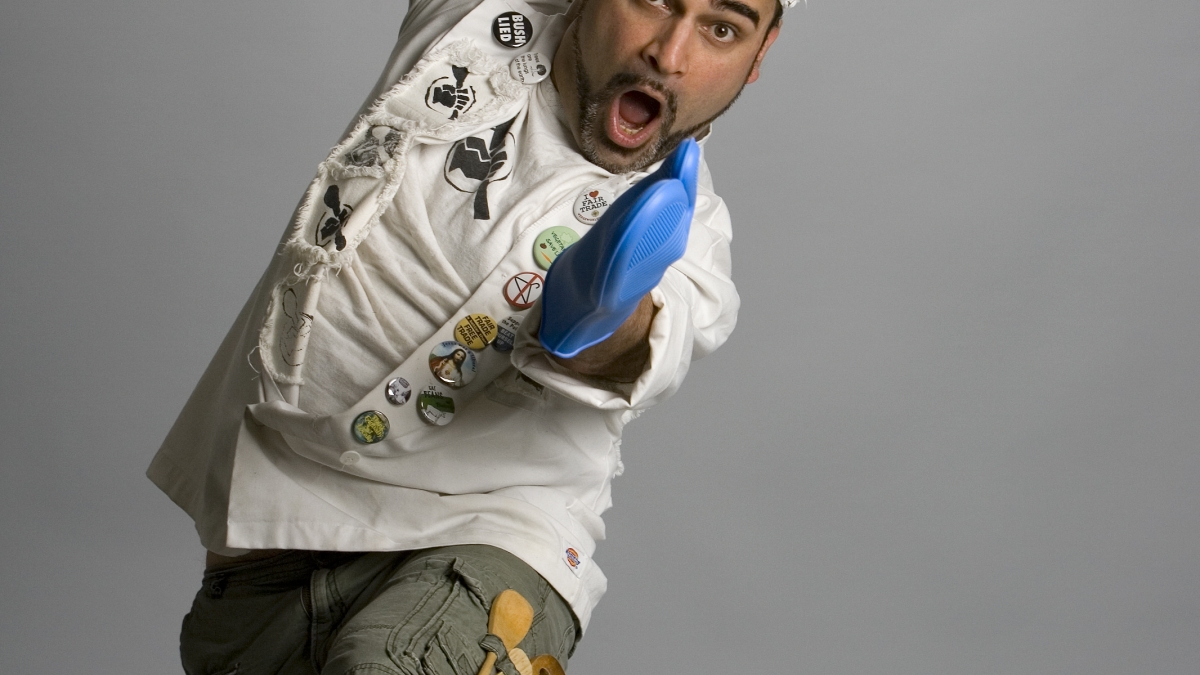ASU Farmers Market to host interactive cooking demo on diabetes

Using culturally specific cuisine, storytelling, and rituals, the Diabetes of Democracy Project combines performance art and interactive cooking to spark discussion about the epidemic of type 2 diabetes and share strategies for combating the disease.
Mero Cocinero, the People’s Cook, and his comrades will be spending most of the month of January in an artistic residency in Phoenix, where they will conduct their signature “Cook. Eat. Together.” performance workshops with high school and college students, as well as allied health practitioners. Cocinero, the alter-ego of performance artist and San Francisco-based chef Robert Karimi, will present public cooking demonstrations at various locations around Phoenix, including a performance from noon-2 p.m., Jan. 17, at the ASU’s Farmers Market on ASU’s Tempe campus.
The “Cook. Eat. Together.” workshops teach the “plate method,” a visual meal-planning practice used by the American Diabetes Association that recommends 50 percent vegetables, 25 percent starch and 25 percent protein. Karami finds the one-diet-for-everybody approach to diabetes management didn’t work. “You don’t have to get rid of tortillas” says Karami, “Maybe you can’t have six, maybe one.”
“Since I came to ASU and started working with the South Phoenix community, I have been asked again and again, ‘What do we do about the rising rates of obesity and diabetes among our children?’” says Seline Szkupinski Quiroga, faculty associate in the School of Nutrition and Health Promotion.
“When I heard that Karimi, who I know from working together at Galeria de La Raza in San Francisco, had redesigned his cooking show to focus on diabetes, I knew we had to bring him to Phoenix to share his unique blend of humor, culture and empowerment, and see if it made a difference.”
Karimi, appearing as Mero Cocinero, educates people on the complexity of food and cultural consciousness in a humorous, engaging way. In the Diabetes of Democracy Project, he explores how people can empower themselves by embracing the idea that eating healthy and eating together is a revolutionary act.
The artists’ residency is part of a pilot study examining the relationship between creativity, theatrical performance, and changes in dietary attitudes and beliefs.
“Food doesn’t just fuel the human body; it also carries many deep meanings at the level of the individual body, the social body, and the body politic,” says Tamara Underiner, ASU associate professor in the School of Theatre and Film.
“We learn what food means when we attend to the places it is eaten; the conversations that occur around it; the ways it is shared; and the stories told by the people who prepare it. No dietary advice or intervention can work if we don’t first attend to the meanings in the meals. Theatre and performance can play a role in fighting diabetes as we measure how attitudes and beliefs change as a result of participating in these interactive/performance workshops.”
The project was conceived by Tamara Underiner and Stephani Woodson, professors in the School of Theatre and Film; Quiroga; and Donna Winham of the School of Nutrition and Health Promotion. Megan Todd, a graduate of the doctoral program in Theatre and Performance of the Americas, has joined the team as youth project coordinator.
Funding for this project comes from an Institute for Humanities Research Collaborative Seed Grant, with support from the Herberger Institute for Design and the Arts. The Institute for Humanities Research in ASU’s College of Liberal Arts and Sciences has taken the lead in promoting excellence and innovation in humanities scholarship by contributing to scholarly research that addresses socially significant issues and engaging the community. More information is available at http://ihr.asu.edu or 480-965-3000.